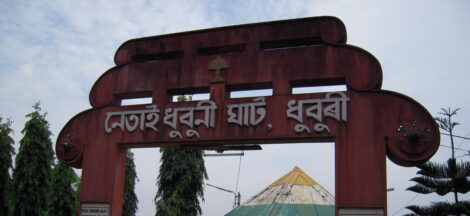The Supreme Court has overturned the expulsion of Rashtriya Janata Dal Member of the Legislative Council Sunil Kumar Singh from the Bihar Legislative Council, deeming the action “excessive and disproportionate.” Singh was expelled in July 2024 following allegations of making derogatory remarks against Chief Minister Nitish Kumar during a heated session in the House.
A bench comprising Justices Surya Kant and N Kotiswar Singh delivered the verdict, emphasizing that while Singh’s conduct was inappropriate, the punishment meted out violated not only his rights but also those of his constituents. The court stated that legislative bodies must exercise restraint and ensure that disciplinary actions are commensurate with the misconduct to uphold democratic principles.
The controversy began during a budget session in February 2024 when Singh allegedly mocked Chief Minister Nitish Kumar by referring to him as “Paltu Ram,” a colloquial term implying frequent political defection. Singh further imitated the Chief Minister’s demeanor and sarcastically commented on his political journey, stating, “The man who has not contested a single Mukhiya election till date is the Chief Minister of Bihar.” These remarks led to a complaint by MLC Bhishma Sahni, prompting the Ethics Committee of the Bihar Legislative Council to take up the matter.
The Ethics Committee, after reviewing the incident, labeled Singh’s behavior as “abhorrent” and “unbecoming of a legislator.” In its report submitted on February 12, 2024, the committee recommended Singh’s expulsion, asserting that as the chief whip of the opposition, he failed to uphold the dignity and decorum of the House. Acting on this recommendation, the Legislative Council passed a motion on February 13, 2024, leading to Singh’s expulsion.
In response to his expulsion, Singh approached the Supreme Court, challenging the decision on grounds of it being arbitrary and violative of his fundamental rights. His legal counsel argued that while maintaining decorum is essential, the punishment should align with the nature and gravity of the misconduct. They contended that lesser punitive measures, such as suspension, could have been considered instead of outright expulsion.
The Supreme Court, in its judgment, concurred with this perspective. Justice Surya Kant observed that while Singh’s remarks were indeed disrespectful and warranted disciplinary action, the expulsion was a severe measure that disproportionately impacted both the legislator and his electorate. The court highlighted the importance of free speech within legislative assemblies but underscored that it should not be misused to demean or defame fellow members.
Justice N Kotiswar Singh added that legislative bodies possess the authority to enforce discipline; however, such power must be exercised judiciously. He emphasized that excessive punishments could set a concerning precedent, potentially stifling legitimate dissent and debate within the House. The judgment also quashed the Election Commission’s December 30, 2024, notification that had called for a by-election to fill the vacancy created by Singh’s expulsion.
The ruling has elicited varied reactions from political circles in Bihar. Leaders from the RJD welcomed the decision, viewing it as a vindication of their stance that the expulsion was politically motivated. An RJD spokesperson stated, “The Supreme Court’s judgment reinforces the principle that while discipline is necessary, it should not be wielded as a tool for political vendetta.”
Conversely, members of the ruling Janata Dal expressed reservations. A party representative commented, “While we respect the Supreme Court’s decision, it’s imperative that legislators maintain decorum. Disrespectful behavior towards the Chief Minister or any member undermines the sanctity of the House.”
This case brings to the forefront the delicate balance between ensuring decorum in legislative proceedings and safeguarding the rights of elected representatives. The Supreme Court’s decision serves as a reminder that while disciplinary measures are essential, they must be proportionate and just, reflecting the democratic ethos of the nation.




 Maha Kumbh Culminates with Record-Breaking Attendance
Maha Kumbh Culminates with Record-Breaking Attendance 